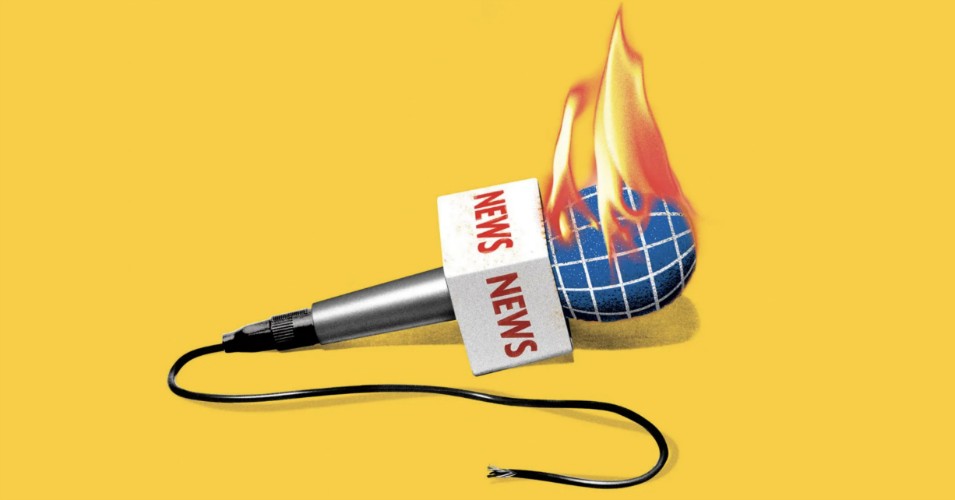By Common Dreams
Name and shame.
That’s the dual directive from a new report that calls on news organizations to use appropriate language when discussing the climate crisis – even as the report calls them out for inaction.
The report, ‘Call It a Crisis’: The Role of U.S. Network News in Communicating the Urgency of Climate Change, – analyzed the coverage by ABC, NBC, CBS, CNN, MSNBC and Fox News to determine just how much urgency the influential outlets bring to their reporting.

The specific words that journalists and news anchors use – or choose not to use – matter, says David Arkush, managing director of Public Citizen’s Climate Program.
“The words we use to characterize an issue make a difference in how it is perceived and prioritized politically,” he said.
When outlets with massive nightly audiences like the ones the report studied “consistently fail to use language that conveys that climate change is a crisis or emergency, they unwittingly put a heavy thumb on the scale in favor of complacency and inaction,” he added.
Fox News was the worst offender, with the use of “climate crisis” coming in for only five mentions during the coverage period – all of which, as Public Citizen noted, were efforts to “minimize the issue with false logic, mockery or misinformation.” But other news networks weren’t much better than the conservative channel.
The only network to use the term in double digits was CNN, and only 16 of the 26 mentions were by a host. Van Jones, whose eponymous show ran every other Sunday during the survey period, accounted for six of those mentions.
NEW REPORT: In 2018, only 50 of 1,429 national TV news segments used the word “crisis” or “emergency” when discussing climate change. That’s a measly 3.5 percent.
Here’s how the networks stack up:
MSNBC: 7%
NBC: 6%
CNN: 3%
CBS: 3%
ABC: 2%
Fox: 2%https://t.co/93TwlUFU6F pic.twitter.com/flGtQobdZd— Public Citizen (@Public_Citizen) April 29, 2019
Networks should name the problem clearly to avoid confusion, says Allison Fisher, outreach director for Public Citizen’s Energy Program.
“Climate coverage on broadcast and cable television news is still at best spotty and at worst riddled with misinformation,” Fisher said. “Calling it a crisis indicates that the stakes are high and that the issue is urgent. Most of all it signals to viewers that the time to act on climate is now.”
How to report on the climate crisis has long been an issue for news organizations. In July 2018, MSNBC host Chris Hayes said on Twitter that while he was personally invested in the story, the topic was “a palpable ratings killer.”
“So the incentives are not great,” said Hayes.
almost without exception. every single time we’ve covered it’s been a palpable ratings killer. so the incentives are not great.
— Chris Hayes (@chrislhayes) July 24, 2018
This work is licensed under a Creative Commons Attribution-Share Alike 3.0 License.
–
Comments welcome.
–
1. From Steve Rhodes:
The financial incentives to some of the richest corporations in the world were not sufficient to save the planet from destruction. Oh well! Sucks to be you, Earth!
Posted on April 29, 2019


